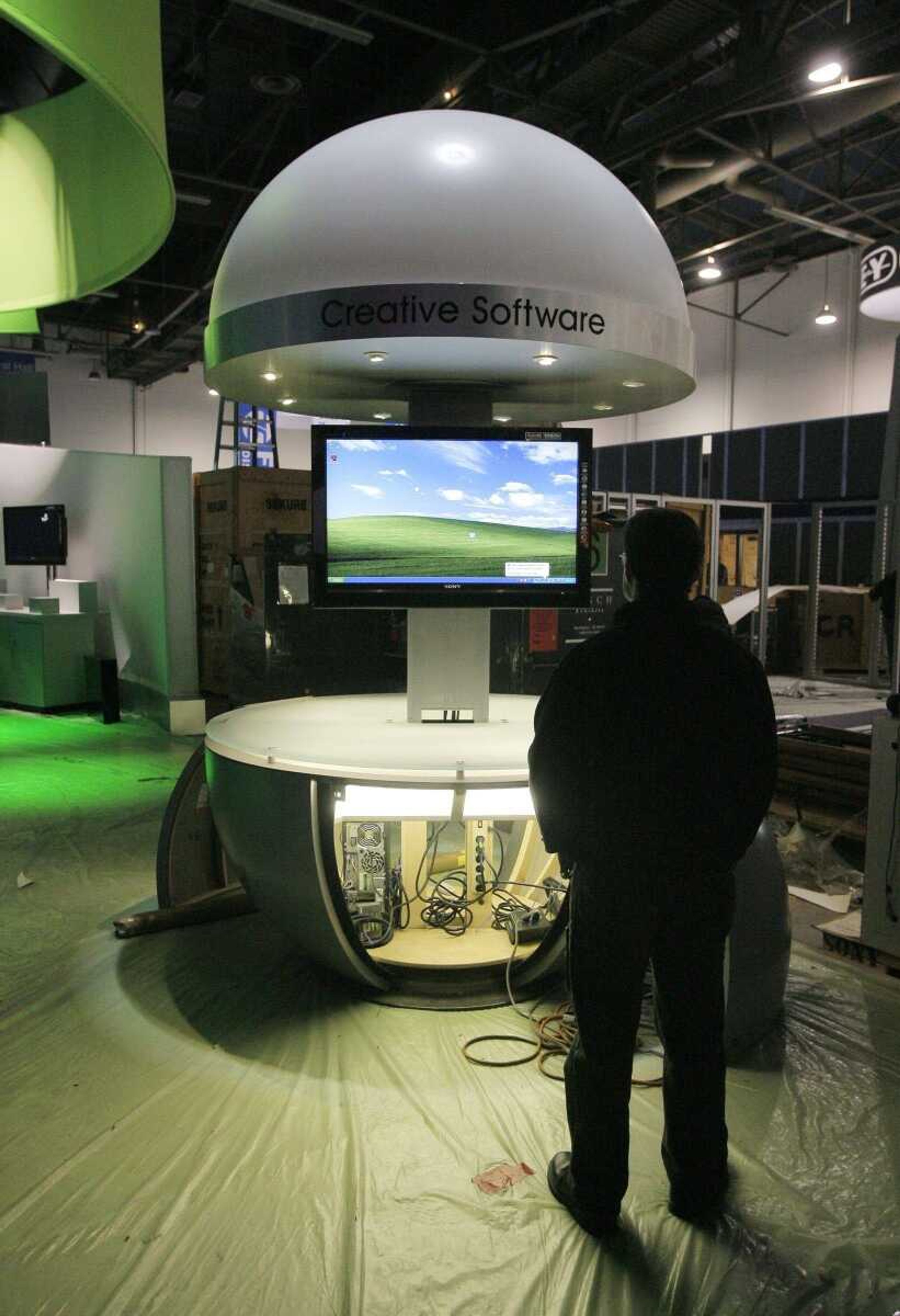LAS VEGAS -- Consumer electronics aren't exactly easy on the environment: They consume electricity that contributes to global warming, and toxins leach out of them when they end up in landfills.
But the industry that's inviting us to get a new cell phone every year and toss out that old TV in favor of a great new flat panel is also trying to show that it cares.
At the world's largest trade show for consumer electronics, starting Monday in Las Vegas, manufacturers will be talking not just about megapixels, megahertz and megabytes, but about smart power adapters that don't waste as much electricity, batteries that are easier to recycle and components made from plants.
Many of the products on display will be striking rather small blows for the environment, but the industry is realizing that even in electronics, going "green" can be a powerful marketing tool.
"Everything I've heard from folks out there is that there is going to be a lot of emphasis on green this year," said Scot Case, a vice president at consultancy TerraChoice Environmental Marketing Inc.
One of the 2,700 exhibitors at the International Consumer Electronics Show will be Japan's Fujitsu Ltd., which will show off a laptop with a plastic case made from corn rather than petroleum products. The company has sold such a model in Japan since 2006, but is now considering taking it to the North American market.
Environmental awareness among consumers and corporations has now reached the point where manufacturers really are taking notice, said Richard McCormack, senior vice president of marketing at Fujitsu's U.S. arm.
"They're driving manufacturers like us with their pocket book," McCormack said.
The catch with the corn-based laptop is that the material isn't biodegradable, meaning it doesn't decompose any faster than regular plastic. That's because it still contains some petroleum-based plastic in the mix for rigidity. The plastic still needs to be processed for recycling, after which the corn-based component can biodegrade.
Another company attacking the recycling angle is Z-Power, which has developed a battery technology that it hopes will replace the lithium-ion batteries that power today's laptops and cell phones. Its silver-zinc batteries will show up in laptops from a "major" manufacturer in the summer, according to the Camarillo, Calif., company's chief executive, Ross Dueber.
Lithium-ion batteries are recyclable but contain little recoverable material. The metals in Z-Power's batteries will be recoverable, Dueber said, and with a precious metal like silver in them, there will be a strong incentive to do so. The capacity should be 20-30 percent higher than lithium-ion laptop batteries. The company is also in discussions with cell-phone manufacturers.
PC makers have already come a long way toward making their products recyclable, said Jeff Ziegler, chief executive of Austin-based TechTurn Inc., which processes millions of used computers and other gadgets every year for recycling or reuse. Manufacturers have cut down on the number of different materials that go into their products, simplifying recycling a great deal. They've also cut back on lead solder and other poisonous components.
But as yet, only a few manufacturers, like Sony Corp., take responsibility for recycling their products. Just 12.5 percent of U.S. electronics waste is offered for recycling each year, according to the Environmental Protection Agency, and much of that is dumped rather than recycled.
At the show, the EPA will be announcing a campaign to provide consumers with more places to turn in cell phones for recycling, in partnership with manufacturers and retailers. The agency puts the number of unused cell phones lingering in drawers at 100 million.
Also at the show, manufacturers are expected to trot out computers, especially laptops, that meet the EPA's new, tougher Energy Star 4.0 power consumption requirements, which went into effect in July. The specification now sets maximum levels for power consumption when the computer is on but idle -- previously, Energy Star dealt only with the ability to enter "sleep" mode.
Connect with the Southeast Missourian Newsroom:
For corrections to this story or other insights for the editor, click here. To submit a letter to the editor, click here. To learn about the Southeast Missourian’s AI Policy, click here.







